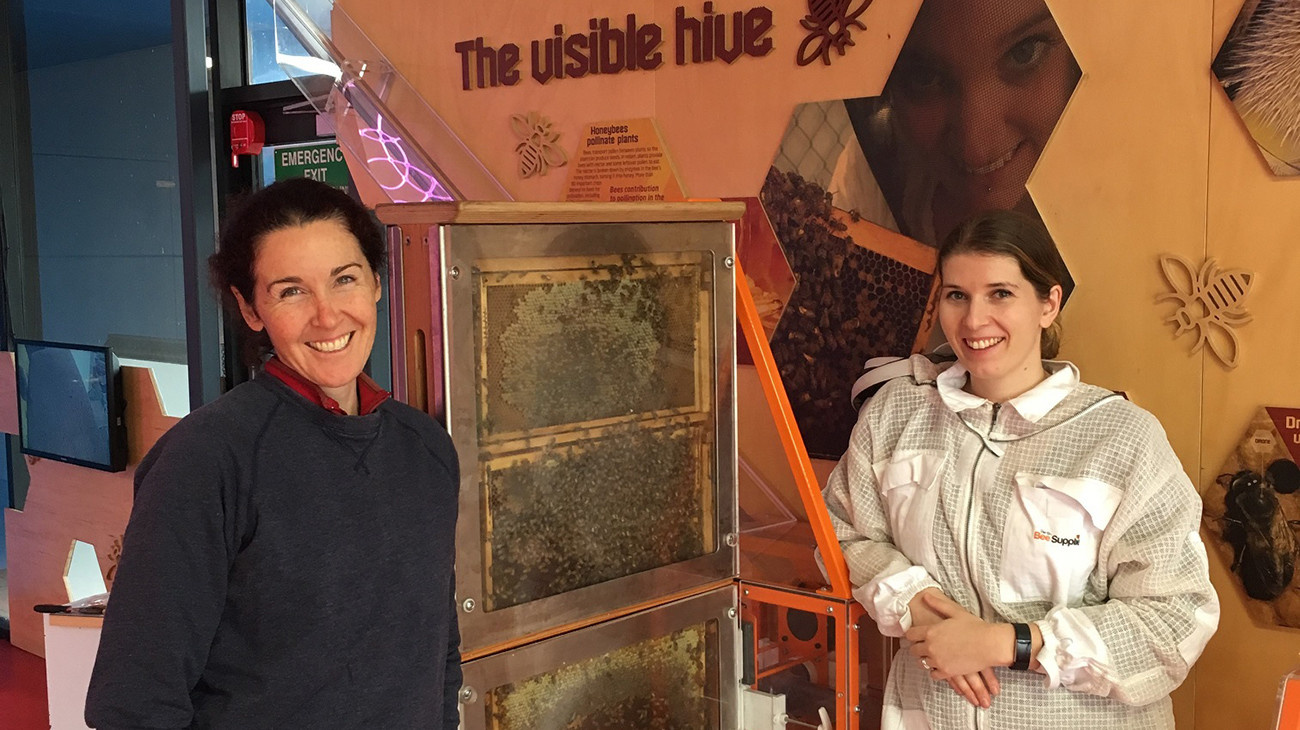Posted Tuesday, 20 May 2025
Scitech to spark science curiosity across the Kimberley
Scitech is embarking on an epic tour across the Kimberley, visiting 26 remote community schools.
Scitech was abuzz with a new colony of bees moving into their new home.

Tiff Bates (L) UWA’s Research Beekeeper and Scitech Presenter Coordinator Jane Colwill (R)
This is the first time since the initial installation of Scitech’s Visible Hive in 2013 that the colony has been replaced. The fresh hive brings with it a new Queen Bee and hundreds of new residents.
Tiff Bates, UWA’s Research Beekeeper, has worked with Scitech staff to manage the hive since installation. Along with the new colony she’s brought in frames full of honey to feed them over the winter.
“The new bees have now settled in, with their next challenge being to work out the tube system in and out of the building,” said Scitech’s Director of Science Programs, Andrew Hannah.
“Bees use a combination of navigational systems, one being visual cues, so the signs on the outside of Scitech pointing to the hive entrance will assist them to orientate themselves with their new home in no time.”
Scitech developed the Visible Hive in collaboration with UWA to highlight the importance of honeybees as pollinators for our agricultural industry, while building awareness of the challenges honeybees are encountering around the globe.
Bee colonies are facing worldwide decline due to disease, heavy use of pesticides, and the destructive Varroa mite.
However, Australia has one of the healthiest bee populations in the world, particularly in Western Australia. This is in part due to our strict biosecurity laws, which has so far stopped Varroa establishing itself in our hives, and stricter pesticide regulations than in some countries.
The high quality of Australia’s bee population often sees them exported to Canada, Asia and various parts of Europe with over 40 million bees exported per month during peak periods.
Bees help pollinate over one-third of the foods we eat, where pollination is needed so the plants, nuts, and fruits can grow.
They can recognise zero and count to four, display emotions, and teach each other new skills – rather impressive considering they have a brain the size of a sesame seed.
Honeybees only live for a few months, but they make the most of their time on Earth working together keeping their hives buzzing.
Upon clicking the "Book Now" or "Buy Gift Card" buttons a new window will open prompting contact information and payment details.